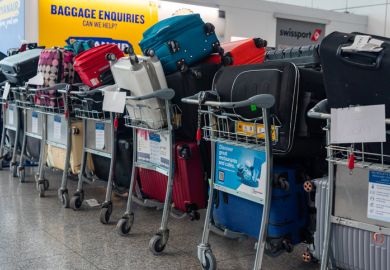Malaysia is continuing to review its immigration policies with a view to opening up further opportunities for international students to stay and work, according to the head of the country’s internationalisation body.
Novie Bin Tajuddin, chief executive of Education Malaysia Global Services, told Times Higher Education that Malaysia was trying to “strike the balance” between being “very strict” and “very lenient” when it comes to immigration rules for international students.
In 2015, the country set a target of recruiting 250,000 international students to Malaysia’s universities by 2025. However, due to the impact of the pandemic, this target was expected to be pushed back to 2030. Currently, there are an estimated 115,000 international students enrolled at the higher education level in Malaysia.
While policymakers plan to continue prioritising international student recruitment, there are concerns that growth is being hampered by strict immigration rules: in particular, the lack of opportunities for students to stay and work in the country once they graduate.
At the end of 2023, the government introduced a new visa that allows foreign graduates from 23 countries who studied in Malaysia to stay for a year in order to further their studies, travel and work part-time in certain job sectors. Eligible countries include Singapore, South Korea, Japan, the UK and the US.
“I want to tweak it further,” said Mr Tajuddin, adding that the Higher Education Ministry, which Education Malaysia falls under, is working with the Ministry of Home Affairs to “iron out” issues faced by international students.
He said they had learnt from countries like Australia and Canada, which have both recently made significant changes to their international student immigration rules.
“When we strike the balance, I think it is going to be a better environment…because we also want quality students to come and study in Malaysia,” he said, adding that the standard of education on offer in the country has improved in recent years.
“International people are looking at Malaysia as the country that is affordable and also with a good quality of education,” he said.
This has been supported by the establishment of 10 branch campuses over the past 30 years, including the University of Nottingham Malaysia, the University of Southampton Malaysia, Monash University Malaysia and Swinburne University of Technology Malaysia.
But, Mr Tajuddin said, British campuses in Malaysia have not reached their full potential because student enrolment figures “are not so good”.
“I would like to invite more [branch campuses], but at the same time, we have to ensure that we maximise the capacity that we have created,” he said.
“If we were to have many universities, but then the capacity is not utilised fully, I think it's such a waste.”
Register to continue
Why register?
- Registration is free and only takes a moment
- Once registered, you can read 3 articles a month
- Sign up for our newsletter
Subscribe
Or subscribe for unlimited access to:
- Unlimited access to news, views, insights & reviews
- Digital editions
- Digital access to THE’s university and college rankings analysis
Already registered or a current subscriber?







